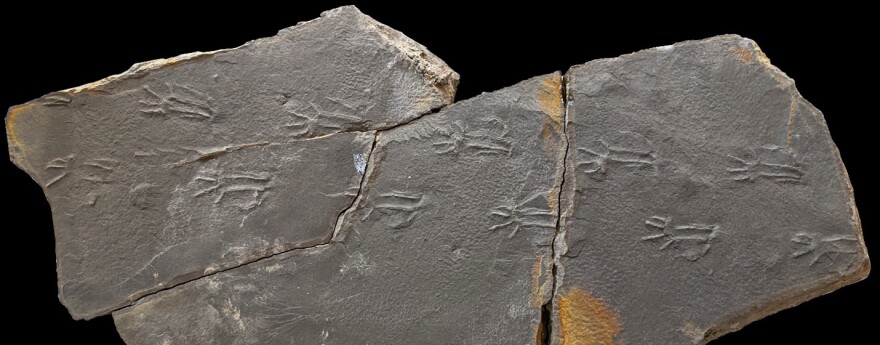This weekend is a chance to see fossil trackways, fossil invertebrates and fossil plants found in mines and other places from Alabama’s Coal Age up close and personal.


On Saturday, April 8, the Alabama Museum of Natural History and the Alabama Paleontological Society will host a free Fossil Track Meet from 11 am until 3:30 pm in the Grand Gallery of Smith Hall at The University of Alabama.
Dr. Adiel Klompmaker is the Curator of Paleontology at the University of Alabama Museums. He said visitors will learn what the Coal Age was like in Alabama millions of years ago.
"This is the natural heritage of Alabama. And over the last really 20 years, so much material has been found and has really become an important part of natural heritage of Alabama from back in those days," he explained. "People get to see how Alabama looked like 315 million years ago... see firsthand fossils that will be on display on tables rather than behind glass. People get to see them up close, and you can see every detail."
Dr. Klompmaker said there will be dozens of specimens for on-lookers to check out. They also can get to know people from the Alabama Paleontological Society: what they do, how they got interested in fossils, and so on.

"We get to see for the first time how many specimens have been amassed in those strip mines in Alabama," he explained. "And the general public is welcome to see those specimens, really, for the first time. We don't know what's going to show up exactly, but we are expecting hundreds of slabs from Coal Age fossils. Mostly ancient, reptilian trackways and amphibian trackways, but also plants and invertebrate."
There will also be a layperson talk by Ron Buta, prominent Alabama Paleontological Society member, at 11:30 am on Saturday about trackways and other fossils from the famous Union Chapel Mine in Walker County.
“The preservation of the Union Chapel Mine, the most prolific Coal Age fossil track site in the world right here in Alabama, by a determined group of fossil enthusiasts is a great example of how amateurs can make significant contributions to science,” said Prescott Atkinson, Alabama Paleontological Society vice-president.
This is a free event and open to the general public, hobby paleontologists and professional paleontologists.


